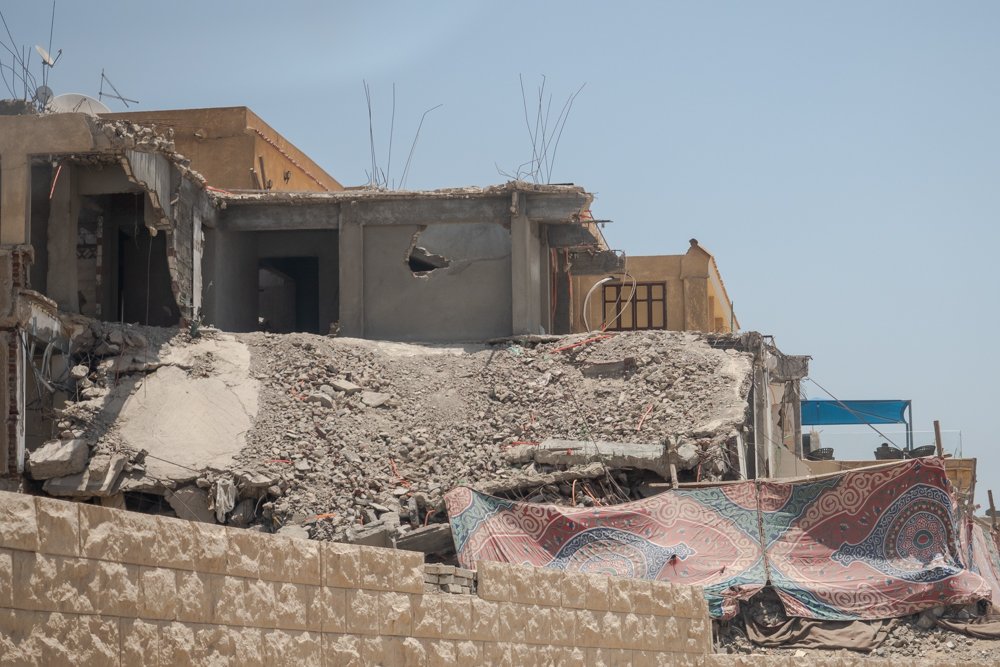
Egypt: Women in the Kitchen
Egypt records a HIV prevalence rate of less than 0.1%.
However, activists in the country - many of whom effectively work undercover due to high levels of stigma - will tell you that the stats are “wildly underestimated” and that “HIV in Egypt is a disaster”.
Due to massive gender inequality, women and girls are disproportionately affected by both HIV and violence - with the presence of one, increasing the risk of the other.
Photography and stories for Frontline AIDS.
With the exception of staff, all identities have been concealed.
"Quashing female thought and independence has become normal.
If you raise a daughter saying she should not go out, or have money, and that her brother has a say in anything she does - then she is not taught how to express herself, or defend herself.
Violence in the family home pushes girls out and into marriage.
Violence from the husband pushes women out of the marital home. .. Then she may sell sex.
Violence from police officers means she has to to hide the fact - which means she doesn’t get to choose her clients, can’t negotiate safe sex, and so on.
It is very hard to put rights into practice."
- Reda Shukry, founder of Al Shehab Foundation, Cairo

High levels of HIV stigma means most people will conceal their HIV status - often even from their close family.

Cairo is a mega-city - a city with a population of 10 million or more. HIV activists say that people are dying because because they don't have access to treatment - but the deaths aren't recorded as being HIV-related.

A neighbourhood where a support group of women living with HIV meet in secret. Apart from the regular meeting place, they don't know where each other's homes are so everyone feels protected.

“I walked the ring road at 2am to get to my baby at the hospital,” says Amirah, 27. "The doctor called me and told me to 'come now'. No-one would come with me. It was very dangerous at night, but there was no other way."

Amirah held her daughter for the last time.

"How do you think it felt to hold my daughter and watch her take her last breath? Do you know what it is like to lose a part of yourself?” - Farah.

Many people living with HIV are never tested. Among those who are diagnosed, many don't take treatment regularly - some not at all. Because there's a lack of information out there for people, most are unaware of how effective treatment is, or the risks of not adhering to it.

Shaimaa, 28, supports women via the Al Shehab Foundation in Cairo. "If people know the facts they can protect themselves... One woman asked if the cockroaches in her apartment could pass on the virus - this is the low level of knowledge we're dealing with."

The foundation aims to increase women's sexual and reproductive health choices and autonomy - this is often hindered when a woman is in a controlling relationship.
“I want you to stop - please stop -and really imagine for a moment:
How do you think it felt to hold my daughter and see her take her last breath?
Do you know what it is like to lose a part of yourself?”
- Farah

In Alexandria, all of the women in attendance at a HIV support meeting had to ask permission to leave the house - either from their husband or their mother-in-law. And all had to make up another for leaving the home.

"I'm here, but you can't see me."



Nutrition becomes additionally important when taking HIV medication. Some women shared how they have resorted to sex work to buy food for themselves and their children. Either because their husband had left them, or died, and they were not financially independent, or because after paying bills and buying drugs, food was at the bottom of the list.
“The supermarket sends me sex workers!”
- Reda

"When you have to keep everything in, not even tell your own mother, just meeting others in the same position is a huge relief. When I speak, I feel better - the silence has been broken” - anon.

Reda is a woman equipped with the facts about HIV and rights. She saw women struggling in silence in her own neighbourhood started to provide support. Her foundation grew from there - now supporting women across six regions in Egypt. She believes that Egypt has suffered from a lack a of HIV investment due to the underestimated figures.

"It started off very small - I was supporting just 13 women who were selling sex, plus educating people who had connections with them, such as late night mini-markets, taxi drivers, and concierges. People were hard to find as not many people wanted to admit to selling sex. Now, the supermarket sends me sex workers!" - Reda



